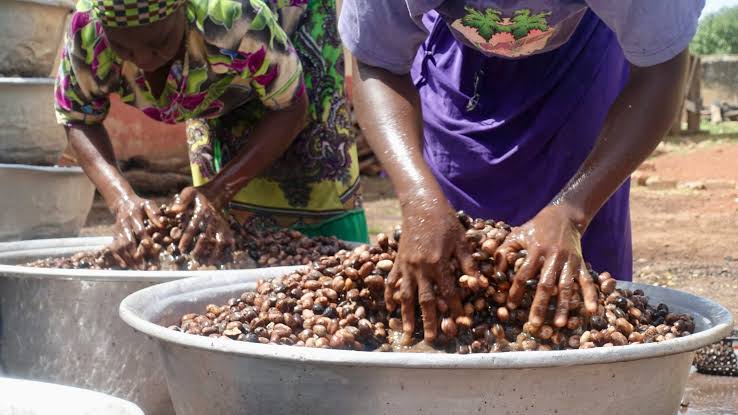By Chidi Ugwu
The Network of Practicing Non-Oil Exporters of Nigeria (NPNEN) has called on the Federal Government to reconsider its recent ban on shea exports, advocating for a phased, consultative approach to bolster local processing and industrialization.
In a detailed position paper obtained by our Correspondent, the group emphasized the need for policies that support value addition, protect smallholder livelihoods, and align with Nigeria’s regional trade commitments.
NPNEN expressed strong support for building industries to process raw materials locally, particularly in the shea sector, which holds significant potential for job creation, women’s empowerment, and non-oil export growth.
However, the group stressed that such industrialization requires robust investment in infrastructure, clear incentives, and well-defined transitional policies. “Nigeria must build industries that process raw materials locally, but this can only succeed with the right support systems in place,” the submission stated.
Rejecting sudden export bans, NPNEN argued that prohibition is not a viable strategy for driving industrialization. Instead, the group proposed a phased roadmap developed through stakeholder consultation to balance industrial goals with export credibility and the livelihoods of smallholder farmers.
The organization also highlighted the need for better policy coordination among the Ministries of Trade, Agriculture, and related agencies to create inclusive, sustainable, and enforceable solutions.
To address the current policy challenges, NPNEN urged the Federal Government to take the following steps: “Reverse the blanket ban on shea exports and replace it with a phased restriction tied to measurable milestones for local processing capacity.
“Engage stakeholders, including exporters, processors, and investors, in a transparent consultation process to design effective policies.
“Invest in processing facilities across shea-producing states, using the Mokwa facility as a model to scale up value addition.
“Provide incentives for small and medium enterprises (SMEs) and women-led businesses in the shea value chain to promote inclusivity.
“Align trade policies with Nigeria’s commitments under the Economic Community of West African States (ECOWAS) and the African Continental Free Trade Area (AfCFTA) to maintain regional credibility”.
NPNEN warned that reactive and unilateral policies risk undermining the shea sector’s potential to drive economic growth.
“The shea sector offers Nigeria a unique opportunity to create jobs, empower women, and boost non-oil exports, but this will be squandered without inclusive and well-coordinated policies,” the group stated.
The organization expressed its readiness to collaborate with the government to develop a roadmap that strengthens the shea sector, supports exporters and processors, and positions Nigeria as a global leader in value-added shea products.










